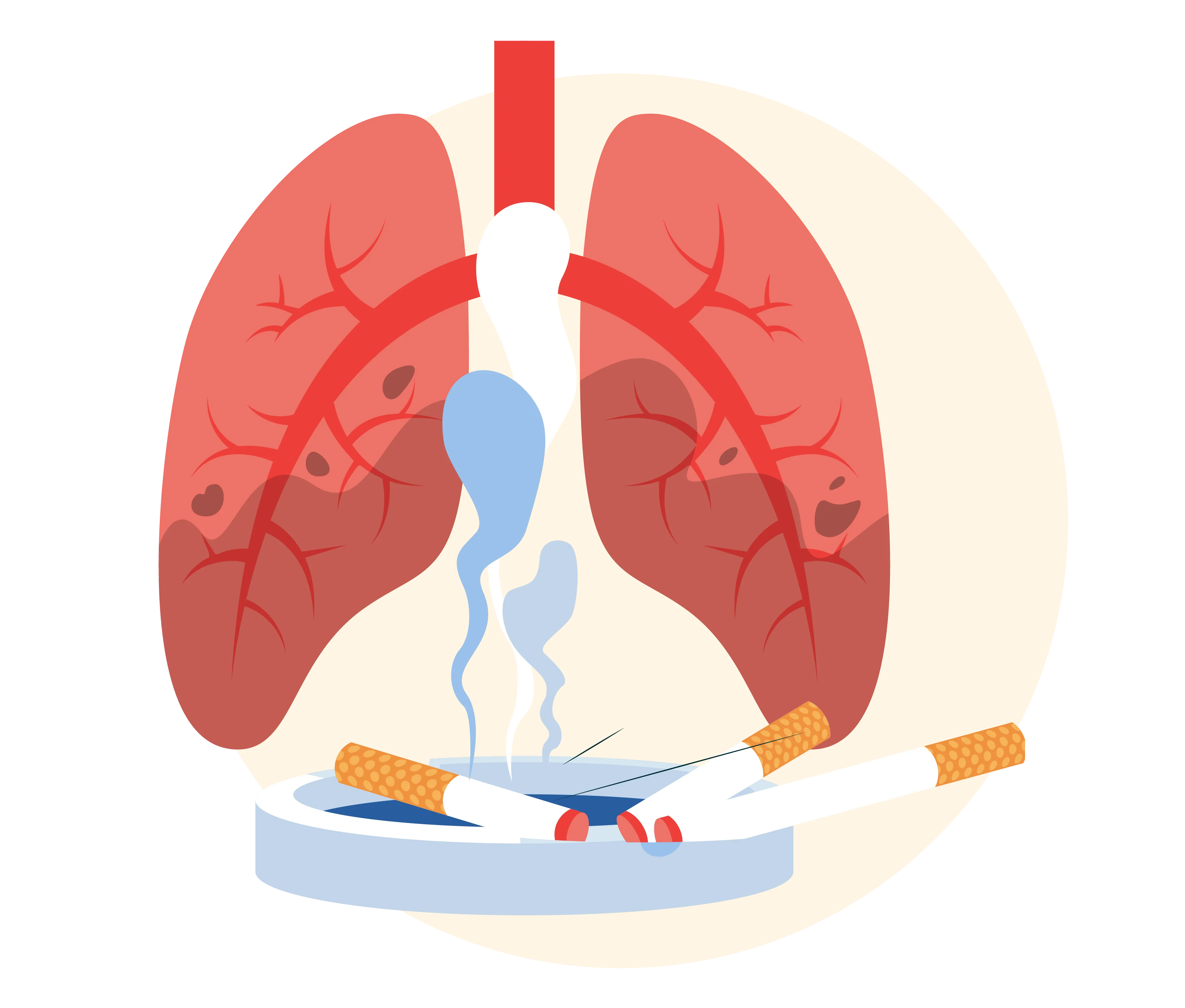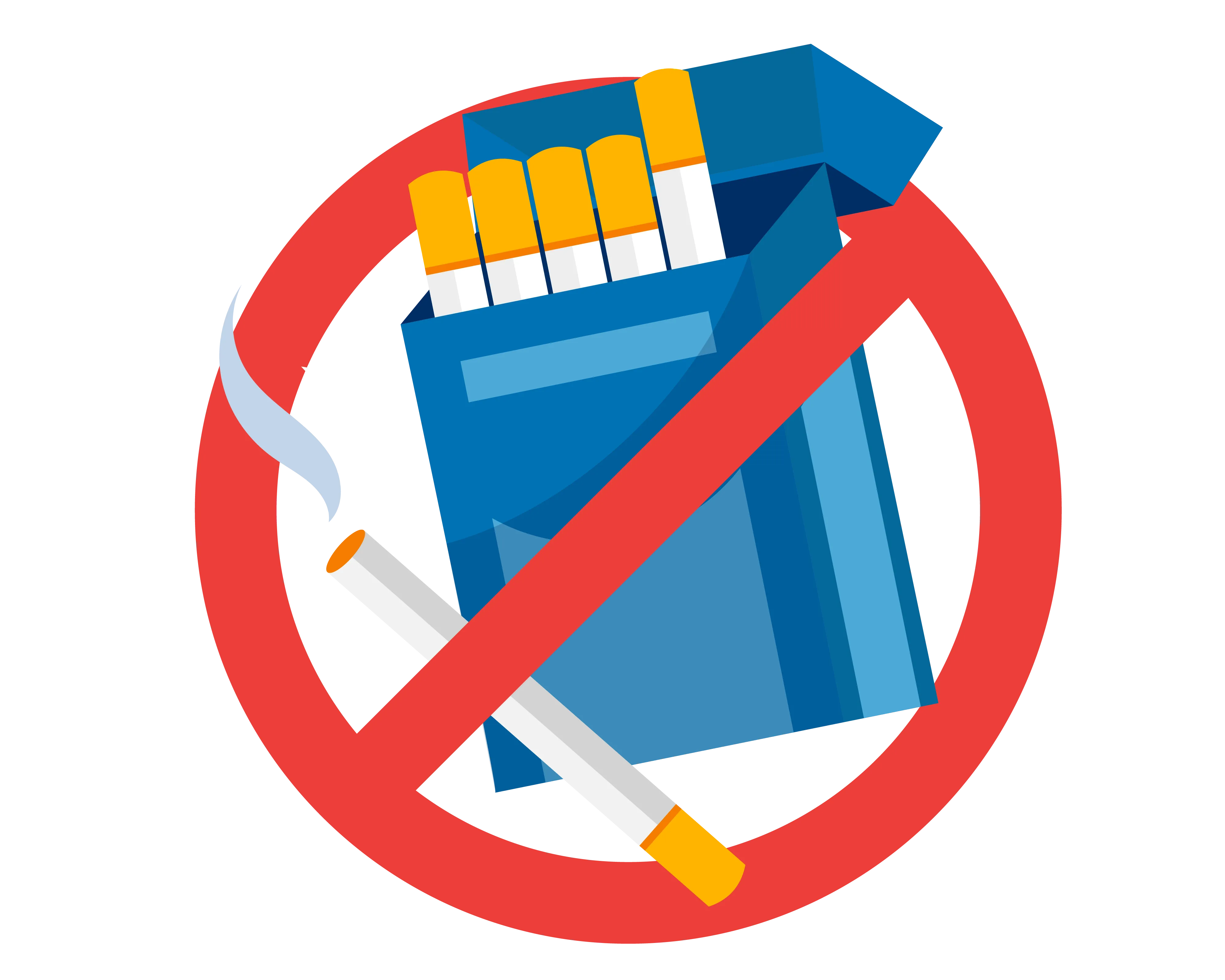General Physician | 5 min read
How to Quit Smoking and Boost Immunity: Try These 8 Effective Tips
Medically reviewed by
Table of Content
Key Takeaways
- Around 38% of the adult population smokes cigarettes
- Cigarette smoke harms innate and adaptive immunity
- Smoking can cause brain, heart, and respiratory diseases
Tobacco is the cause of more than 8 million deaths every year, as per the WHO. This tobacco epidemic kills almost half of its users worldwide. You may already know that cigarette smoking is the most common form of consuming tobacco, and ⅓ of the adult population smokes cigarettes. However, cigarettes contain harmful chemicals like carbon monoxide, cadmium, nitrogen oxides, and nicotine. These ingredients can take a toll on the health of your immune system, causing infections and cancer as well as respiratory, brain, and heart diseases. To stop these ill effects in their tracks, read on to learn how to quit smoking and boost immunity simultaneously.

How Does Smoking Affect Your Immune System?
Studies have found that both innate immunity and adaptive immunity are harmed by cigarette smoke. It affects immunological homeostasis and causes various diseases. It also affects immune and tissue cells. Cigarette smoking weakens immunity against infections as nicotine is an immunosuppressive that hinders the immune system’s ability to kill pathogens.
Smoking also leads to inflammatory agents in the lungs that lead to the persistent chronic inflammatory syndrome. It is also responsible for causing autoimmune diseases. Some of these include rheumatoid arthritis, multiple sclerosis, Graves' hyperthyroidism, and primary biliary cirrhosis. Smoking is linked with brain damage, causes high BP, increases the risk of blood clots, and may lead to emphysema and chronic bronchitis, among a range of health concerns.

How to Quit Smoking to Improve Your Immunity?
Accept, plan and commit.
It’s hard to go off a habit or an addiction. Accept that you have a problem and take the first step by planning to quit. Set a goal and commit to yourself to defeating smoke cravings. Set a goal linked to something that means a lot to you. This may be to prevent your spouse and children from inhaling secondhand smoke, preventing lung cancer, or stop aging faster.
Do it for yourself and your loved ones.
Your life is precious, and you may feel the same way about your loved ones. Convert your cravings into the motivation to achieve something in life. Smoking lowers your life expectancy. So, think about your children, family, and future before you light up a cigarette.
Keep track and reward yourself.
Don’t get demotivated if you light up again. Observe the trigger and situation that made you go astray. Use it to create a better plan and step up your commitment until you finally quit smoking. Set a date and reward yourself with small gifts or vacation using the money you save, which you would have otherwise spent on smoking.
Get involved in a hobby and eat better.
People often smoke to escape stress, but research has proven that cigarettes increase tension and anxiety. So, change your method of de-stressing. Work on a hobby you like or exercise regularly. Doing so will activate oxytocin, the happy hormones in your body. A study has also found that eating certain foods makes cigarettes more satisfying while others taste terrible. Avoid meat and include cheese, fruits, and vegetables in your diet.
Additional Read: Check if your Food and Lifestyle Choices Compromising Your Immune System?
Read the dangers of smoking to stay on the path.
Every time you feel the urge to smoke, think about its harmful impact on you and your family. Smoking causes an increased risk of strokes, depression, chronic obstructive pulmonary disease, rheumatoid arthritis, eye diseases, diabetes, and other chronic conditions. The more dangers you understand, the sooner you will quit smoking. For best results, replace your smoking time with something productive or relaxing. Take a walk outside, watch a short comedy reel, or listen to music before getting back to whatever you were doing.
Consider cognitive behavioral therapy (CBT)
CBT can help you develop a personal coping strategy to quit smoking, so take an appointment with a therapist. Remember, the nicotine withdrawal when you stop smoking can give you headaches, affecting mood and energy. So, consider nicotine replacement therapy. Studies have found that nicotine gum, lozenges, and patches increase the chances of quitting successfully. In addition, there are certain medications that your doctor may prescribe to help you quit smoking.
Get your feelings out.
If you smoke to get rid of stress caused by emotional or relationship problems, it won’t do you any good. Instead, try talking to the concerned person and resolve your issues. Talk to your family or friends about your plans to stop smoking. They may be able to help or encourage you to reach success. You can also join hands with a friend or family member who wants to quit smoking and work together. A study found that couples who attempt to stop smoking together have a six-fold chance of success.
Join anti-tobacco clubs and attend workshops
You may find it easier to quit smoking by joining social groups devoted to helping their members. This way, you can meet others like you who try to stop this unhealthy habit and get needed support. You can also sign up for workshops and seminars conducted by health groups near you or online to join a community dedicated to improving their lives by quitting tobacco for good.
Additional Read: Energy Drinks That Can Boost Your Health With ImmunityFollow the steps listed above to quit smoking and boost not only your immunity but also your life overall, as the effects of both smoking and secondhand smoke can be life-threatening. If you want to know how to stop smoking immediately or need help to break a lifelong habit, consult a doctor near you. Book an appointment hassle-free on Bajaj Finserv Health and commit to better health today.
References
- https://www.who.int/news-room/fact-sheets/detail/tobacco#:~:text=Tobacco%20kills%20more%20than%208,%2D%20and%20middle%2Dincome%20countries.
- https://www.drugabuse.gov/publications/research-reports/tobacco-nicotine-e-cigarettes/what-are-physical-health-consequences-tobacco-use
- https://www.ncbi.nlm.nih.gov/pmc/articles/PMC5352117/
- https://pubmed.ncbi.nlm.nih.gov/17153844/
- https://www.nhs.uk/live-well/quit-smoking/10-self-help-tips-to-stop-smoking/
- https://www.mentalhealth.org.uk/a-to-z/s/smoking-and-mental-health
- https://www.sciencedaily.com/releases/2019/04/190412085218.htm
Disclaimer
Please note that this article is solely meant for informational purposes and Bajaj Finserv Health Limited (“BFHL”) does not shoulder any responsibility of the views/advice/information expressed/given by the writer/reviewer/originator. This article should not be considered as a substitute for any medical advice, diagnosis or treatment. Always consult with your trusted physician/qualified healthcare professional to evaluate your medical condition. The above article has been reviewed by a qualified doctor and BFHL is not responsible for any damages for any information or services provided by any third party.





